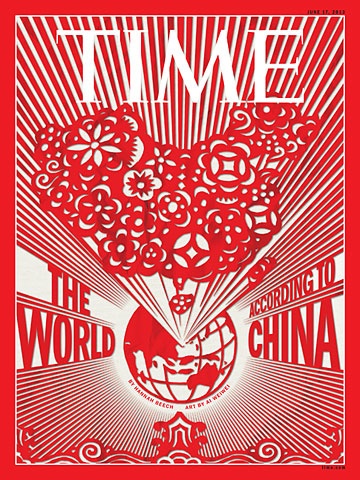
(7 of 7)
Xi's China Dream is designed to address some of the country's pressing social problems. But his ultimate concern may be the longevity of a party that has ruled for more than six decades. In his first trip as China's leader, Xi traveled to the country's south, the capitalist laboratory where three decades ago Deng Xiaoping unleashed the market reforms that have remade the nation. But Xi made no bold initiatives. Instead, in an internal speech that was later leaked, he warned against betraying China's communist heritage. "Why did the Soviet Union disintegrate?" he asked, according to the leaked account. "An important reason was that their ideals and beliefs had been shaken. It's a profound lesson for us. To dismiss the history of the Soviet Union ... is to engage in historic nihilism, and it confuses our thoughts and undermines the party's organizations."
That obsession with avoiding the Soviet Union's fate could well prevent the Communist Party from carrying out reforms that will make the nation stronger and improve its image abroad. In April--even as state newspapers heralded Xi's antigraft efforts, which include a much hyped crackdown on extravagant banquets and expensive cars for government officials--activists in Beijing were detained after holding a banner that read: UNLESS WE PUT AN END TO CORRUPT OFFICIALS, THE CHINA DREAM WILL REMAIN A DAYDREAM. Investigations by foreign media into the fortunes of Chinese leaders' families are scrubbed from the Internet. Efforts to clean the air are foiled by competing directives to maintain growth at all costs. "The average urban Chinese can't say life is better now than it was five years ago," says Bo Zhiyue, a senior research fellow at the National University of Singapore. "People are realizing that GDP growth isn't as important as quality of life."
Such contradictions proliferated as the ancient Chinese dynasties waned. Of course, China watchers have predicted the demise of the People's Republic for half a century only to be proved wrong. In a nation that boasts five millennia of civilization, any number of lessons can be plucked from the past. But here's one from the Tang dynasty (618-907), when China could rightly call itself Zhongguo, or the Middle Kingdom. Tang innovators introduced the planet to gunpowder and woodblock printing. The best and brightest of the world came to China, and the imperial capital, Chang'an (modern-day Xi'an), was a polyglot place where up to one-third of the population was foreign: Persian merchants, Japanese monks, Turkish chefs.
Today, Beijing's foreign population is less than 1% of the total. (In New York City, some 35% of the population is foreign born.) Add to that the brain drain of Chinese elite. "There are always capital outflows from any country," says Wang Huiyao, who runs the Center for China and Globalization in Beijing. "But China doesn't have inflows of talent. We have a huge deficit, and that will make it harder for us to rise in the future." How the world views China, then, may matter just as much as how China sees the world.
